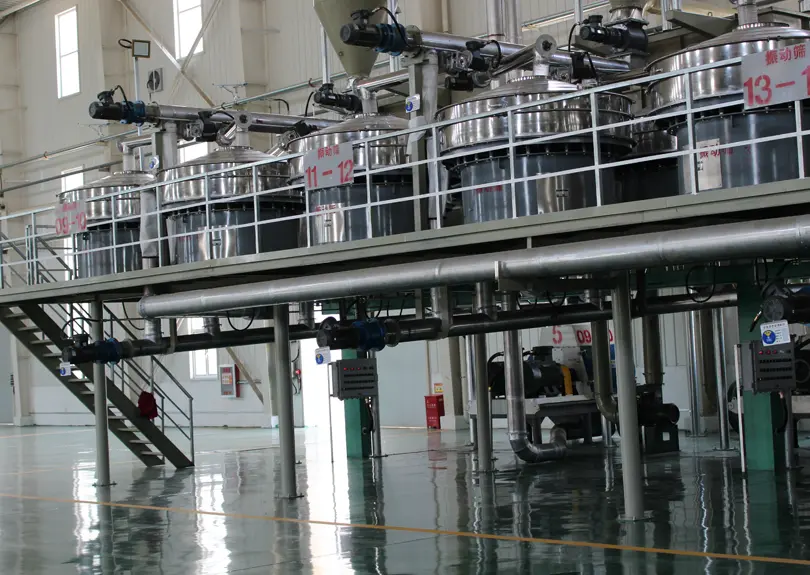
ສ.ຫ. . 09, 2024 01:00 Back to list
Innovative Producers of Hydroxyethyl Cellulose for Diverse Industrial Applications and Solutions
The Role of Hydroxyethyl Cellulose Manufacturers in Diverse Industries
Hydroxyethyl cellulose (HEC) is a versatile, water-soluble polymer derived from cellulose, and it plays a crucial role in various industries due to its unique properties. As a thickener, emulsifier, and stabilizer, it is sought after in applications ranging from pharmaceuticals and personal care products to construction and food processing. The role of hydroxyethyl cellulose manufacturers is vital in meeting the growing demand for high-quality HEC and ensuring its effective application across these sectors.
Understanding Hydroxyethyl Cellulose
HEC is synthesized through the reaction of cellulose with ethylene oxide, which introduces hydroxyethyl groups into the cellulose structure. This modification enhances the solubility in water and provides the polymer with thickening properties. One of the standout features of HEC is its ability to form viscous solutions at low concentrations, making it ideal for a wide range of applications. Additionally, HEC is non-ionic, which allows it to function in various pH conditions without the risk of precipitation.
Applications of Hydroxyethyl Cellulose
1. Pharmaceuticals In the pharmaceutical industry, HEC acts as a thickening agent in various formulations, including gels and ointments, enhancing the stability and consistency of these products. It is also utilized in controlled-release formulations, enabling medication to be released slowly over time, improving therapeutic effects.
2. Personal Care Products HEC plays a significant role in cosmetics and personal care items, such as shampoos, lotions, and creams. Its ability to improve the viscosity of formulations gives products a desirable texture and feel. Furthermore, HEC enhances the stability of emulsions, preventing separation and maintaining product integrity.
3. Construction Materials In the construction industry, HEC is used as a thickener in adhesive formulations, mortars, and tile grouts. Its water-retaining properties help improve workability and extend the open time of these materials, making it easier for workers to apply them effectively.
hydroxyethyl cellulose manufacturer

4. Food Industry HEC is often employed as a food additive, serving as a thickening agent or stabilizer in various food products. Its ability to modify the texture and consistency of foods makes it an essential component in processed foods, sauces, and dressings.
The Importance of Quality Control
As demand for hydroxyethyl cellulose continues to rise, the role of manufacturers becomes increasingly critical. Manufacturers must adhere to strict quality control measures to ensure that the HEC produced meets industry standards and regulatory requirements. This includes monitoring the consistency of the polymer's properties, investigating its compatibility with other components, and ensuring that it is free from contaminants.
The development of advanced manufacturing techniques also enables producers to customize HEC according to specific customer needs, whether it involves tailoring the viscosity or enhancing certain characteristics to fit particular applications.
Future Prospects
The future of hydroxyethyl cellulose manufacturing looks promising, driven by the increasing focus on sustainability and eco-friendly products. As industries aim to reduce their environmental impact, manufacturers are exploring greener methods of production and sourcing raw materials sustainably. This trend toward sustainability is likely to open new avenues for HEC applications, particularly in biocompatible and biodegradable formulations.
Conclusion
Hydroxyethyl cellulose manufacturers play a pivotal role in a variety of industries, providing essential products that enhance the functionality and quality of numerous formulations. With ongoing innovations and an emphasis on sustainability, the future of HEC manufacturing is set to evolve, continually adapting to meet the dynamic needs of global markets. As industries increasingly rely on the unique properties of HEC, manufacturers remain at the forefront, ensuring a steady supply of this valuable polymer for years to come.
-
Unlocking the Benefits of HPMC Products: A Gateway to Versatile Applications
NewsAug.07,2025
-
Unleashing the Potential of HPMC Ashland: A Comprehensive Look
NewsAug.07,2025
-
Tile Bonding Cellulose: The Key to Superior Adhesion and Durability
NewsAug.07,2025
-
Hydroxypropyl Methylcellulose Powder: The Versatile Component in Modern Pharmaceuticals
NewsAug.07,2025
-
Hydroxyethyl Cellulose: The Versatile Solution for Various Industries
NewsAug.07,2025
-
Hydroxyethyl Cellulose (HEC): The Versatile Polymer for Various Applications
NewsAug.07,2025







